On March 19, SPIN Magazine turned 40, marking four decades of redefining music and cultural journalism. Launched in 1985 by Bob Guccione, Jr., SPIN didn’t just cover music — it challenged the status quo, reshaped how artists were covered, and ultimately became the voice of a generation. At a time when the field was crowded with heavyweights, most notably Rolling Stone, SPIN carved out its own lane by embracing the raw, the alternative, and the stories others weren’t telling, including important social stories.
From its earliest days, SPIN championed the artists who would come to define entire movements. It gave a platform to groundbreaking acts long before they became household names, from R.E.M. and Nirvana to Public Enemy and Björk. But more than that, it spoke directly to a generation that didn’t see itself reflected in the glossy pages of the establishment press. Unafraid to take risks, SPIN’s coverage often pushed boundaries — not just musically — cementing itself as a magazine with an edge. By the 1990s, it had surpassed Rolling Stone as the preeminent music publication of the era, defining the voice of Generation X with an authority that was sharp, rebellious, and unmistakably cool.
More from Spin:
- Beck Bringing An Orchestra To Outside Lands
- Robert Glasper, The Roots Set For Blue Note’s Black Radio Experience
- Sabrina, Strokes, Hozier Sign On For Austin City Limits
To mark the occasion, I sat down with SPIN’s founder, Bob Guccione Jr., for a candid conversation about the magazine’s legacy. In typical Guccione fashion, he doesn’t hold back. From the early struggles to the triumphs, the controversies, and the cultural moments that made SPIN what it was, he reflects on 40 years of impact with the same unfiltered honesty that made his magazine essential reading. Here, in his own words, is the story of SPIN — past, present, and future.
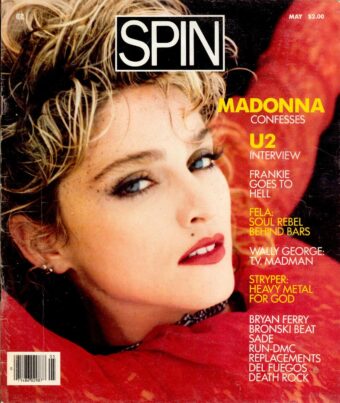
SPIN: When did you know it was something special?
Guccione: I thought it was special from the first issue, because it was an extraordinary array of talents that produced it. But I didn’t realize it until I held the first edition in my hands and read page after page and it was all so fluid and interesting and sparkly and bold. We weren’t fettered to any record company, or any publicist, or any musician, or anything. It was genuine. It had the spirit of the best fanzine ever produced, but it was put into mainstream retail outlets and carried mainstream advertising.
I had this vague idea that the magazine should have all this energy and be honest, and should represent its generation the way Rolling Stone had represented a slightly older generation. I wanted a magazine for the next generation — which was then unnamed, but became named Generation X — and was listening to music and talking about things that weren’t being represented in Rolling Stone or the mainstream press. I wanted a magazine that represented the raw youth culture that was just forming. I always said that SPIN was a magazine for young adults crossing the threshold from adolescence to adulthood.
So this great unfettered energy manifested quite well, if roughly, in that first issue. And then after that, I suppose, we started breaking some big stories. We were inured in the culture and we were bringing truth to people that they weren’t getting anywhere else, specifically around the AIDS column.
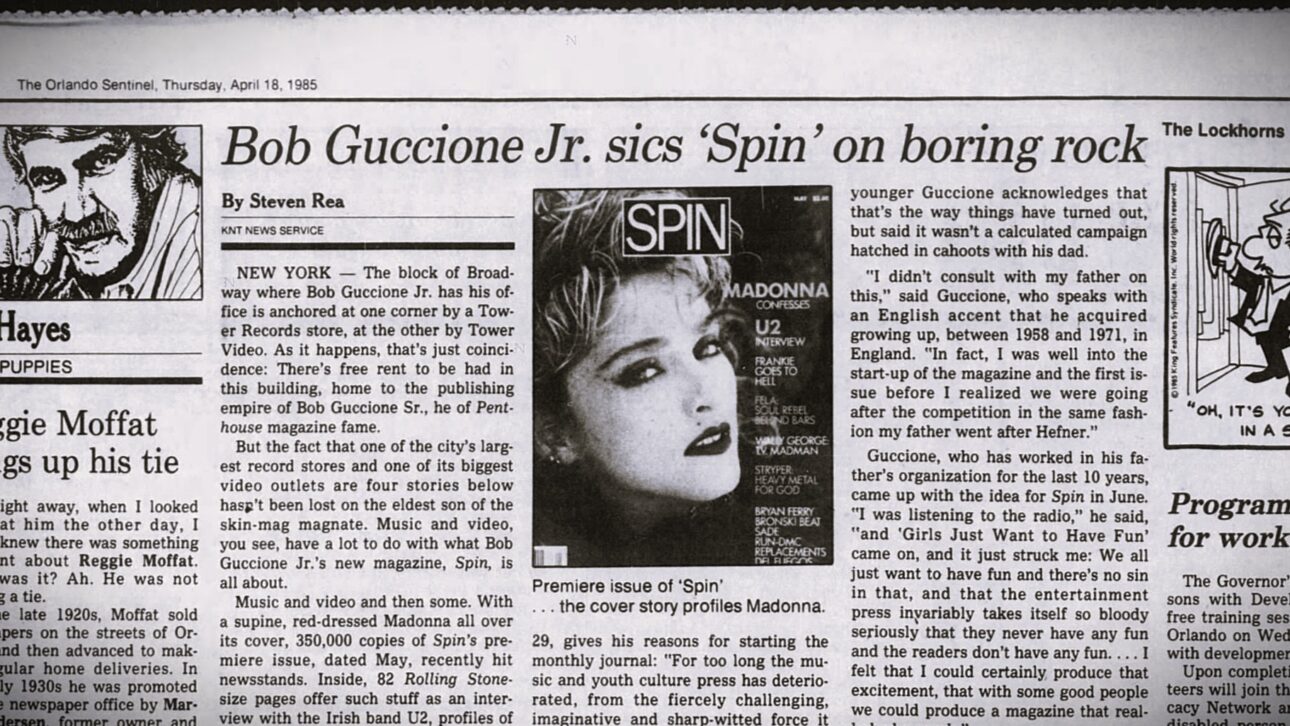
The idea for SPIN came to me in a fraction of a second. I was putting my jacket on to go out for dinner and Cindy Lauper was on the radio singing “Girls Just Want To Have Fun” and the thought came to me, “Everybody just wants to have fun!” And in that same, truncated moment, I saw in front of my eyes page layouts, with the typography — which I actually remembered and copied and ultimately published, including some of the headlines. Time stopped and it just came to me: all these pages came to me, headlines, section heads, articles, topics, and I thought, Oh wow, that’s the magazine I should make.
It happened all in the act of putting my jacket on. By the time I got my arms through my sleeves I thought, I can’t do that. How do I start a magazine? I’m only 28. I don’t know. I just want to go out to dinner with my friends.
Six weeks later I sat bolt upright in bed and thought, “Oh my God, it’s not a question. It’s a vocation. This is not something I get to decide. It has been decided.” So I got up at 6 a.m. in my New York apartment, in my sweatpants, and took out sheets of paper and started drawing obsessively. I drew the whole magazine out, or most of it. Sure, we added to it, and I thought, that’s it. I had no name for it, but I knew this was going to be the magazine I would do, and it was meant to be for my group of friends, and our age group and the music we were listening to, the culture we were consuming, the way we regarded the outside world, which was with tremendous distrust. Don’t forget, it was the Reagan years.
I was inspired by Jann Wenner, because I thought he was brilliant, and I thought Rolling Stone magazine had been brilliant, but it was turning a little soft and mushy and giving in to commercial concerns over cultural concerns. So I thought, “Well, I’ll do what he did, only I’ll do it for now.”
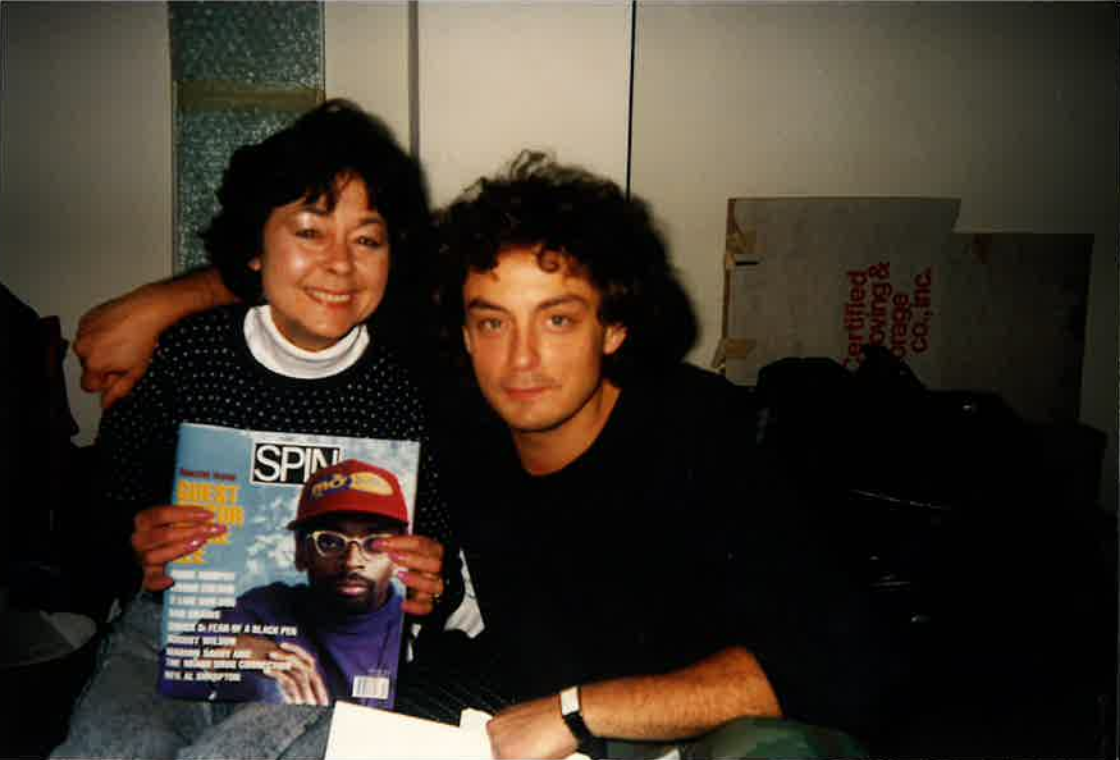
Fifteen years ago you wrote a great piece for the 25th anniversary that began: “The country had just re-upped Ronald Reagan as President, once again buying his snake oil vision of America as a curative for all that ails us. It was a time of bland plenty and artistic stagnation, and also of crippling need and artistic promise. The cold war was raging and dying.” Doesn’t that seem like a parallel for what’s going on now?
It could be, but I’m afraid that the Cold War now might be heading in the opposite direction. And Reagan was Mahatma Gandhi meets Churchill meets every other great world leader by comparison to the fool and criminal that’s running the office right now.
These are dangerous times and I think the media needs to be more reactive and more bold. And the media is being intimidated. That’s deliberate. He’s deliberately intimidating the media. Arresting the Palestinian activist was a way of intimidating the media. They’re saying, “This guy spoke up. Look what happened to him. You know what’s next for you.”
I think we’re living in the same times that Argentina and Chile lived in in the seventies, and Iran has become. I don’t see the difference. We have a guy talking about annexing Greenland and taking the Panama Canal by force, I mean, isn’t that exactly what Putin is doing? I think we live in terrible times and I’d like to see more of the media more reflective of that. And I hope it is. I’ve got to commend Rolling Stone for what they’ve been doing. They’ve done great work. Fantastic work. They’re on top of it. They’ve got balls. And we’re doing a lot of good cultural stories on the site and in the magazine, which has come back to print recently.
I think we need more media covering more of the politics, taking a stand and making a statement.
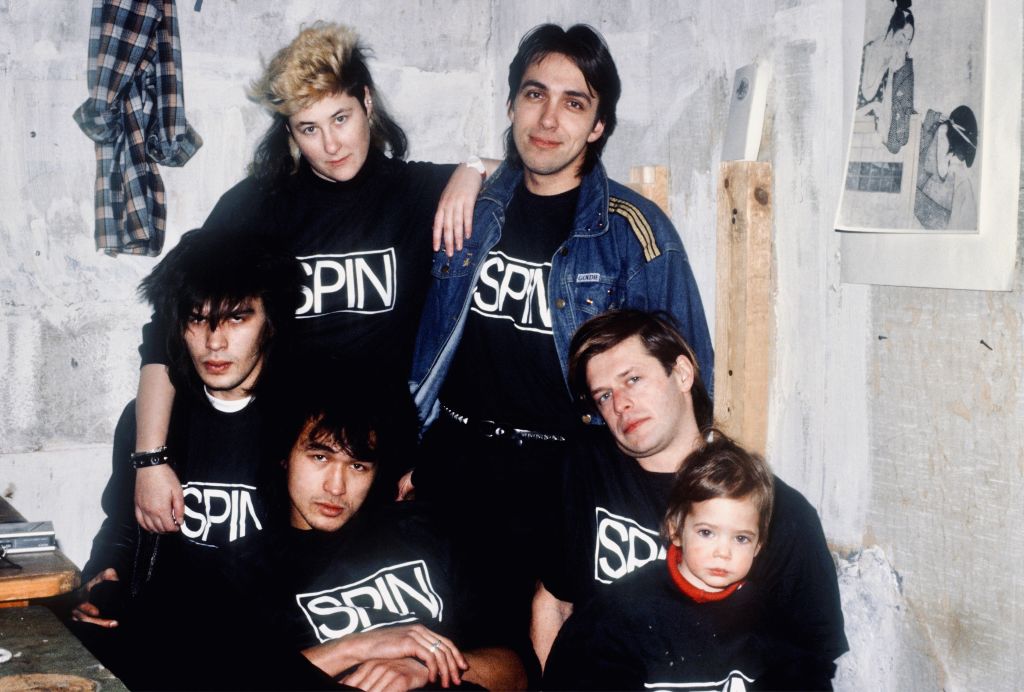
How does SPIN 2.0 drop into this Trump 2.0 backdrop? Since returning as Editor Emeritus, you’ve certainly done your share, including a highly controversial interview with RFK Jr. some say helped give him a platform to run for president, and ultimately become Secretary of Health and Human Services. Would you like to do more of that?
You’re referring to an interview I did with RFK Jr. a couple of years ago when we were still in the pandemic, and he was famously espousing anti-vaccine sentiment. We argued a lot. And I would say out of the entire interview transcript, I took a third of it out because it was just rubbish. And a third of it was exaggerated or tilted. But a third was dead accurate. That’s the third we published. He got to say his piece, which I thought is what’s important. Everybody should say their piece, even if you don’t agree with it, even if they’re wrong, as long as you call them out for being wrong, or you allow others to call them out for being wrong.
I think Kennedy was adding some discourse. That’s powerful journalism, that’s what we need more of. You know I’m a great believer that free speech means free speech, including loonies. And I don’t think Kennedy is a loonie, but he tilts the tables for his arguments. But call them out.
We’ve done very unpopular stories in the history of the magazine. In 1986, we did the piece saying Live Aid was a bust and that the money it raised was going to the wrong guy and he was using it to buy weapons and furthering his cause in a civil war most people didn’t even know existed.
It was 1986. There was no social media, and most TV networks had eliminated their foreign correspondents and were relying on the AP. This story was going under the radar. We thought it was just a famine. No, it was a deliberately created famine as part of a civil war to crush rebels who wanted to form Eritrea. They eventually did, as you know, so we investigated what happened to Live Aid and what happened with the money it raised. It was terribly mismanaged and they gave the money to the Ethiopian dictator, who bought weapons, and let donated food rot on the docks.
We exposed that and we were almost put out of business as a result. The music industry turned on us. They canceled every ad they had, and at that point 90% of SPIN’s revenues were music ads. We had no ads, but we did that story and we stuck by it, because as I said at the time to my staff, I’d rather fail for the right reasons than succeed for the wrong ones. And that became our guiding principle through the 12 and a half years I owned the magazine.
A lot of that kind of journalism was not repeated for decades, but now we’re looking to repeat that. And again I took a lot of heat, for the RFK Jr. thing. SPIN took a lot of heat. People were upset. Well, that’s good. We should upset them, they should get woken up out of this torpor we’re in.
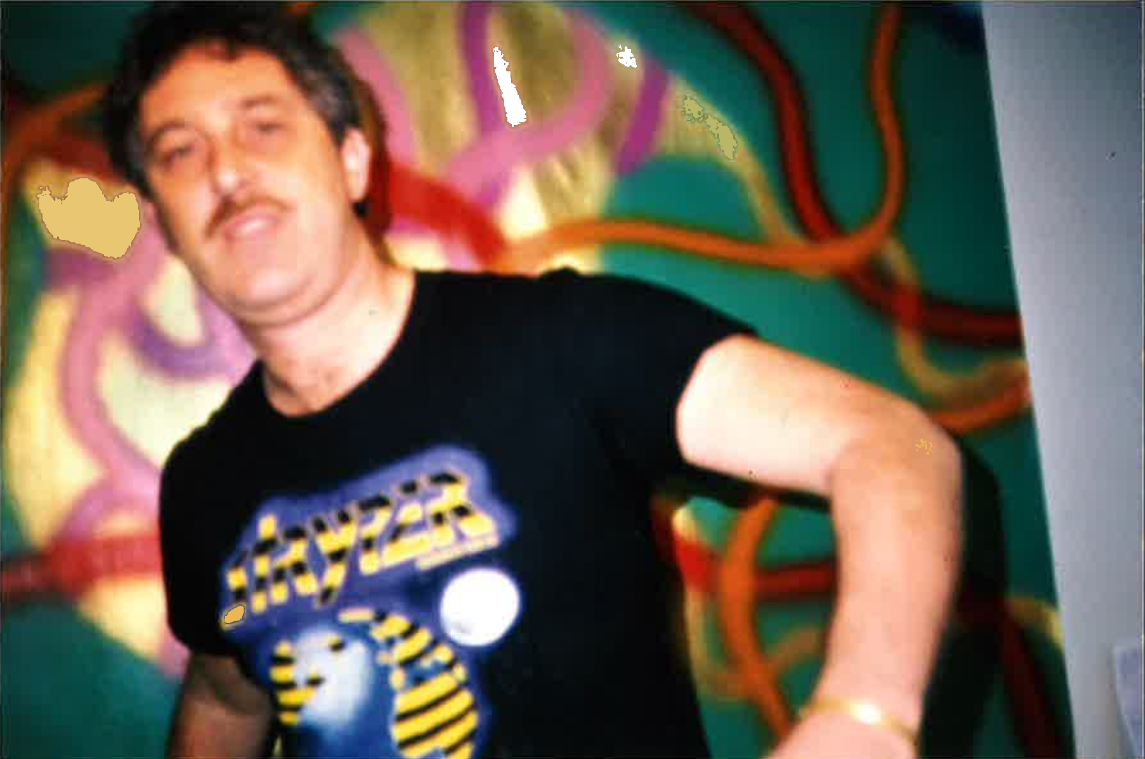
That said, could you have launched this magazine today in a world where most people are getting their news from social media feeds and professional journalism has become so fragmented and come under attack?
The answer is, no, you could not do it today because the times are so profoundly different. But you could do a new version of it, and the times are calling out for strong, opinionated journalism, making powerful, bold statements, and saying, “This is wrong. This is bad.” Not just a tit for tat. Somebody says, “Oh, the government’s bloated and it’s great that he’s cutting it.” And someone else says, “That’s not the way to do it, you know. And, by the way, we’re cutting things to help the rich.”
I think we’re in too many silos. I don’t think Substack is broad enough for enough voices to penetrate the mainstream. TikTok is wrong because it’s too frivolous and stupid. It’s hard to get real news in a two- to three-minute video. We need the existing mainstream news media to get tougher, but you have situations like the Washington Post. It’s not so much that [owner] Jeff Bezos agrees with Trump. It’s that Bezos has businesses that Trump can affect that are far more important to him than the Washington Post.
What Bezos should do is sell it, because he’s going to end up killing it and helping destroy faith in mainstream newspapers.
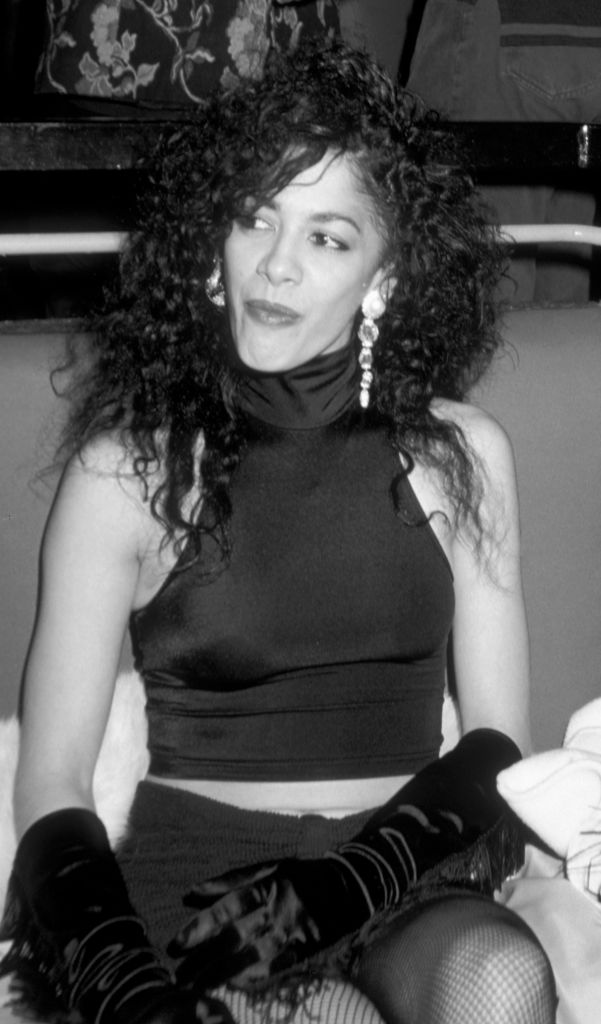
Do you have any regrets about anything you published?
Not journalistically. But we made mistakes in music reporting a lot of times. I regret putting Lisa Stansfield on the cover because it didn’t sell, and it made us look like we were following a trend! I just thought she was going to be hot. She wasn’t hot, that was it. Thankfully, we didn’t put Paula Abdul on the cover, which was one of my ideas. I was talked out of it.
What is the best story about your days and SPIN that’s never been told or published?
One of my favorites was that we were coming up to our 100th issue, and I thought we should do something to make a big deal out of it to attract readers and advertisers.
So we sold it as “the biggest issue in the history of the magazine,” and it was tremendously successful. It came out and it was a great issue and the whole thing was perfectly done. And later an intern walked up to me and said, “Mr. Guccione, you didn’t count it right, it was the 101st issue.” I said to her, “well, that’s rock ‘n’ roll!” And no one knows that story, I don’t think.
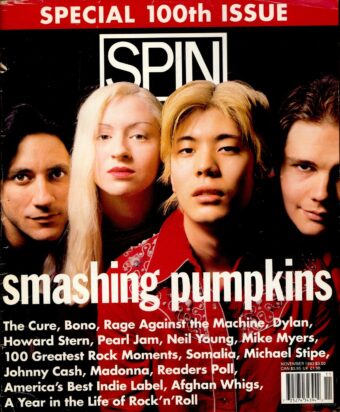
Sounds like you cranked that one up to 11. Do you have any practical insight you can give contemporary readers of SPIN today about how they can get more out of music culture. Obviously, the recording industry has changed a lot.
I would advise them to turn off streaming and go to a record store. They’re still there and you can find them. Walk in and just start browsing. Pick up old records. Pick up new records. Ask the guy in the record story what he listens to.
That’s what I would recommend, because that element of discovery is gone. It’s not discovery when a mechanical algorithm tells you what to listen to next.
And I would say read more about music. Don’t get your musical impulses from Tiktok, because it’s just a different way of using algorithms. So I would just say “Use the Force, Luke,” and just walk into a record store.
Turn off the machines and go out, and physically experience music in three dimensions, either in a dusty record store or or a smoky club. Well, they’re not smoky anymore, are they, but they’re airless.
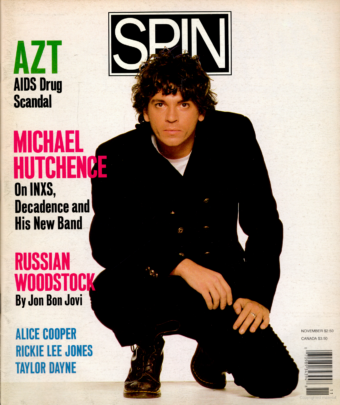
Speaking of machine algorithms, we asked one — ChatGPT — to come up with some questions that the 1985 version of Bob Guccione Jr. would ask you, the 2025 version. It came up with some pretty good questions. Is it okay if we ask a few?
Ha, I don’t mind, but remember that 1985 was a stupid version of me.
As that may be, his first question is: “So did we sell out or did we stay true to our vision of SPIN magazine?”
That’s easy, we stayed true to the vision. And we never sold out. I’ll tell you another story no one’s heard outside of SPIN: One day my publisher came to me in 1985 when we just had a couple of issues under our belt and she said, “Budweiser wants to take double-page [advertising] spreads in every issue.”
I said, “That’s fantastic,” but she adds that it’s contingent on us doing a story on the ‘Budweiser Band.’ It’s Budweiser’s house band. They go around playing in clubs and “they’re really, really good,” she said.
I said, “No, they’re not really, really good, because if they were, they wouldn’t be the house band for Budweiser.”
I love Budweiser and they became one of our biggest advertisers, but I wouldn’t do it. She came back later in the day and persisted, and I told her “If I do it once, I might do it twice. If I don’t do it once, I can never do it twice.” That became one of our guiding principles.
Bob 1985’s second question: “Be honest, did we actually change music journalism? Or did we just piss people off.”
Both. By the way, the 1985 version actually is smarter than me, because I wasn’t that smart then!
We did both, because sometimes pissing people off is just for the fun of it, but quite often it’s part of a signal to the constituents. The music industry thinks they own you, but the music industry — or any cultural industry for that matter — doesn’t, because I’ve always said we work for the reader.
The readers are our shareholders, that’s it. We always work for them. They’re our master, not anybody else, not the advertisers, not the distributors, and not the music industry. And that was again a very simple, clear philosophy. So we’ve pissed people off sometimes to show an irreverence. It was our magazine and we could have fun with it.
Last question from Bob 1985: “Which artist did we totally get wrong? Praise them when we shouldn’t have or trashed them when they were actually brilliant.”
Who did we get wrong, that’s interesting. I mean some of it was just opinion, but we made fun of Sting, just because he’s a bit pompous. But he really is a great musician and a very brilliant man. Did we get it wrong? No, we were sort of tweaking his nose because he was a bit pompous.
What did we miss? Not much that I can’t think of. I mean, I’m sure we missed a few musicians here and there. We didn’t miss hip-hop! We were the first to be all over that of really any mainstream music magazines. Even Black magazines didn’t cover hip-hop in the beginning. It was very obscure.
Obviously, we were all over Grunge and Nirvana long, long before anybody else. And frankly, we were onto World Music long before anybody else.
Bear in mind, I don’t get the credit for that. I can take the credit for 1% of that. The other 99% goes to my editors who just really cared.
What I will take credit for is giving them the green light to follow their noses — you know, their instincts — and it always paid off for us.
What did we get wrong? We probably praised a few people that were no good. There was a little bit of collateral detritus. We liked an album, and it didn’t go anywhere. We praised Bronski Beat, but we didn’t realize they had already broken up before the first issue came out. The writer had asked him to keep it quiet, so he’d still get paid. But we didn’t get that one wrong. That’s still one of the great albums, I think, of the last 40 years. So no, I don’t know. Honestly, I can’t say that we really missed a trend or a person.
To see our running list of the top 100 greatest rock stars of all time, click here.



